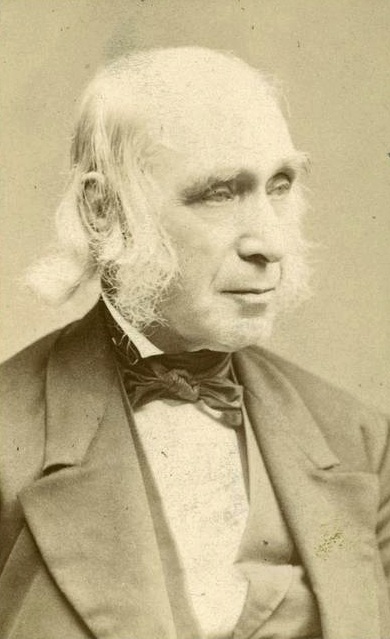Amos Bronson Alcott: Zitate auf Englisch
XVI. CONSCIENCE
Orphic Sayings
Kontext: Ever present, potent, vigilant, in the breast of man, there is that which never became a party in his guilt, never consented to a wrong deed, nor performed one, but holds itself above all sin, impeccable, immaculate, immutable, the deity of the heart, the conscience of the soul, the oracle and interpreter, the judge and executor of the divine law.
XVIII. SPEECH
Orphic Sayings
Kontext: There is a magic in free speaking, especially on sacred themes, most potent and resistless. It is refreshing, amidst the inane common-places bandied in pulpits and parlors, to hear a hopeful word from an earnest, upright soul. Men rally around it as to the lattice in summer heats, to inhale the breeze that flows cool and refreshing from the mountains, and invigorates their languid frames. Once heard, they feel a buoyant sense of health and hopefulness, and wonder that they should have lain sick, supine so long, when a word has power to raise them from their couch, and restore them to soundness. And once spoken, it shall never be forgotten; it charms, exalts; it visits them in dreams, and haunts them during all their wakeful hours. Great, indeed, is the delight of speech; sweet the sound of one’s bosom thought, as it returns laden with the fragrance of a brother’s approval.
LX. FAME
Orphic Sayings
Kontext: Enduring fame is ever posthumous. The orbs of virtue and genius seldom culminate during their terrestrial periods. Slow is the growth of great names, slow the procession of excellence into arts, institutions, life. Ages alone reflect their fulness of lustre. The great not only unseal, but create the organs by which they are to be seen. Neither Socrates nor Jesus is yet visible to the world.
“Believe, youth, despite all temptations, the oracle of deity in your own bosom.”
I. SPIRIT, 6. Oracle
Orphic Sayings
Kontext: Believe, youth, despite all temptations, the oracle of deity in your own bosom. ’T is the breath of God’s revelations,—the respiration of the Holy Ghost in your breast. Be faithful, not infidel, to its intuitions,—quench never its spirit,—dwell ever in its omniscience. So shall your soul be filled with light, and God be an indwelling fact,—a presence in the depths of your being.
“The seraphs descend from heaven, in the solitudes of meditation, in the stillness of prayer.”
I. SPIRIT, 10. Solitude
Orphic Sayings
Kontext: Solitude is Wisdom’s school. Attend then the lessons of your own soul; become a pupil of the wise God within you, for by his tuitions alone shall you grow into the knowledge and stature of the deities. The seraphs descend from heaven, in the solitudes of meditation, in the stillness of prayer.
“The true teacher defends his pupils against his own personal influence.”
LXXX. TEACHER
Orphic Sayings
Kontext: The true teacher defends his pupils against his own personal influence. He inspires self-trust. He guides their eyes from himself to the spirit that quickens him. He will have no disciples. A noble artist, he has visions of excellence and revelations of beauty, which he has neither impersonated in character, nor embodied in words. His life and teachings are but studies for yet nobler ideals.
Journals https://books.google.it/books?id=fzRaAAAAMAAJ, Port Washington, NY: Kennikat Press, 1938, Volume 1, p. 115.
XVII. THEOCRACY
Orphic Sayings
From III. HOPE
Orphic Sayings
